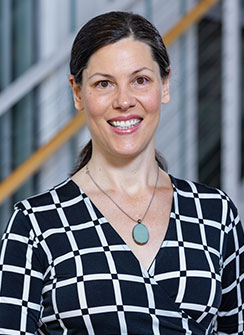By guest contributor Priyanshu Agrawal I am a doctor and a patient. Through my personal journey, a profound exploration of self-awareness, and…
Stepping up to Address Global Breastfeeding Inequities: Reflections on World Breastfeeding Week 2022
By guest contributor Cecilia Tomori
Breastfeeding saves lives and helps keep families and communities healthier. Each year approximately 600,000 infants and young children die because they are not appropriately breastfed. Breastfeeding also has significant impacts on maternal health. Nearly 100,000 mothers’ lives could be saved each year from ovarian and breast cancer and complications from Type II diabetes if the world adequately supported breastfeeding. The impacts of inadequate support for breastfeeding are inequitable – they disproportionately effect the Global South and marginalized communities in the Global North – and they have ripple effects across families and communities. Global and local public health efforts have resulted in increasing exclusive breastfeeding and breastfeeding duration in many regions but progress remains too slow to achieve 2030 targets. As we wrap up World Breastfeeding Week 2022, we must reflect on the numerous barriers that remain and why breastfeeding, chestfeeding and human milk feeding are not adequately valued and supported in many settings.
While most birthing people around the world wish to breastfeed, they face numerous obstacles. Most of these obstacles are due to systems that ignore or undermine lactation. Health systems are key area of concern because it is where pregnant people often learn about recommendations for infant feeding and where they turn for advice when they face challenges. Moreover, perinatal practices set the stage for breastfeeding success. Anthropologists have long recognized that human infants are born in a comparatively very immature state to other primates and require close bodily contact, and intensive and lengthy parental care. Lactation is part of this evolved biocultural system and frequent nursing is a central part of it.
Enabling skin to skin contact right after birth so that babies can initiate breastfeeding, and supporting mothers to continue to have lots of skin-to-skin contact and opportunities to coordinate breastfeeding in the early days and weeks help breastfeeding get off to a good start. Best practices are laid out in the Baby Friendly Hospital Initiative and the 10 Steps to Support Breastfeeding. Health care providers and communities must be knowledgeable and engaged in breastfeeding and value it to adequately support lactating people from pregnancy through the postpartum period. Unfortunately, many health systems continue to routinely separate mothers and babies and lag behind in implementing these recommendations.
Moreover, health systems often serve as gateways for predatory commercial milk formula (CMF) marketing. Providers often receive limited education on lactation during their training, and some of this education may come directly from these companies. In many settings CMF is still routinely distributed and newborns receive CMF without medical need. Providers often recommend CMF and specialty CMF products to address concerns about newborn behavior – for instance when babies are perceived to be “fussy” or are not sleeping as expected. Yet many of these recommendations reflect lack of knowledge about normal human infant behavior and lactation and are based on CMF industry marketing efforts rather than evidence.
Predatory marketing in the Global South caused enormous public outrage in the 20th century, which led to the Nestlé boycott and to global health efforts to regulate the industry via the WHO Code of Marketing of Breast-Milk Substitutes over 40 years ago. Companies vowed to make changes and gave lip service to the WHO Code. But we have extensive documentation that their predatory marketing practices never stopped. Instead, companies have ramped up their marketing efforts and the industry has grown. The WHO Code and its subsequent resolutions have not been adequately incorporated into law in most settings, and many settings struggle with enforcement of any legal requirements that do exist. Digital marketing efforts are even harder to track. These marketing efforts are full of scientific claims that have no basis but appeal to the desire of parents and health care providers to ensure the infant and child health. Even emergencies can be treated as marketing opportunities, like the COVID-19 pandemic.
The CMF industry also actively engages in other efforts to prevent and subvert regulation and to shape the political and legal environment to make it favorable to extracting more profit. Some of the most egregious industry practices have been demonstrated in the ongoing US CMF shortage that revealed a systematic disregard for safety as well as prior lobbying efforts to ease regulation.
Inadequate paid leave for lactating parents and unsupportive work policies constitute another major area of obstacles that undermine lactation. All nations must recognize the importance of rest and recovery after childbirth, caring for infants and breastfeeding. Today, even the minimal standards set by the International Labor Organization (ILO) of 14 weeks of paid leave often remain unrealized and those in the informal sector are not covered.
Paid leave standards must be shifted to longer periods that cover both sectors and recognize the high level of care that exceptionally immature human infants require. These programs must also ensure that lactation is valued as part of this process and that mothers are adequately supported when they return from leave so that they can breastfeed or express their milk.
To address these systems level barriers, global health and medicine must confront the persistence of colonial ideologies and power relations across its systems. Racist assumptions about non-western populations, the desire to “civilize” people and regulate their population to enhance their ability to extract profits from colonized people drove flawed assumptions about human infant behavior and breastfeeding practices. Colonial powers actively undermined breastfeeding and created new markets for infant food products and CMF made in the Global North. They built health systems based on these assumptions that further undermined breastfeeding. And they reaped corporate profits with the Global South and marginalized groups in the Global North bearing the majority of the consequences. Western nations that gained wealth from colonial exploitation continue to support the growth of large multinational CMF companies that continue this exploitation.
To end this vicious cycle, powerful western nations must confront these legacies, reorient their assumptions about lactation and implement policies that provide structural and social support required for breastfeeding success. All lactating people must be supported in their desire to breastfeed, chestfeed and feed their babies with human milk. We must raise our collective voices and step up to hold the powerful accountable to make breastfeeding possible and fully, equitably supported for communities around the world.
About the author:

Cecília Tomori is Associate Professor and Director of Global Public Health and Community Health at the Johns Hopkins School of Nursing with a joint appointment at the Johns Hopkins Bloomberg School of Public Health. She is a Hungarian American anthropologist and public health scholar whose work investigates the structural and sociocultural drivers that shape health, illness and health inequities. Dr. Tomori is an internationally recognized expert on breastfeeding, infant sleep and maternal child health. She has published three books on breastfeeding and reproduction, Nighttime Breastfeeding: An American Cultural Dilemma (2014), Breastfeeding: New Anthropological Approaches (2018 with Aunchalee EL Palmquist and EA Quinn) and The Routledge Handbook of Anthropology and Reproduction (2022 with Sallie Han) as well as numerous articles. Her Twitter handle is @DrTomori
